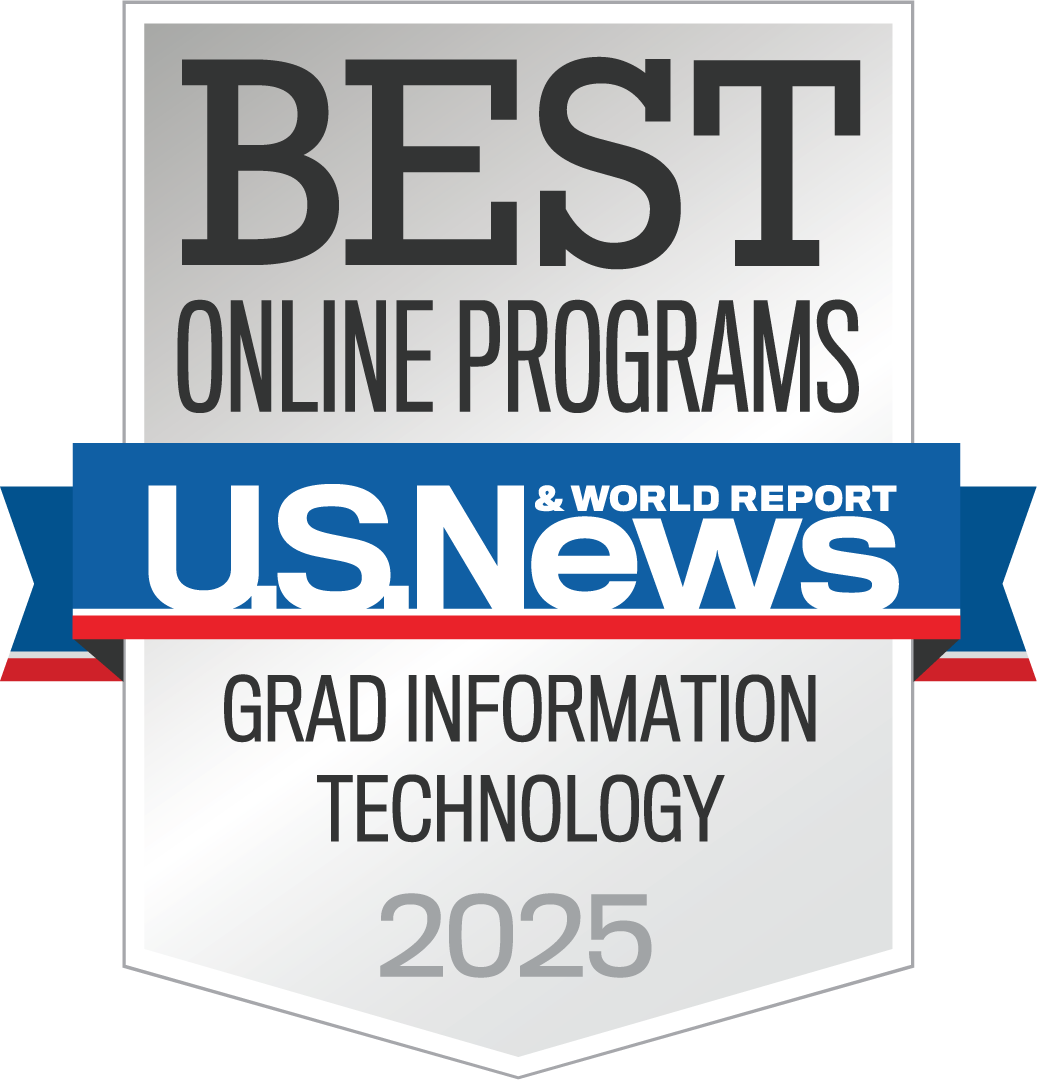Harness Big Data to Inform Decision-Making
The rapid pace at which digital data is being generated has resulted in very large amounts of data, usually referred to as “Big Data,” which require new techniques for processing and analysis. Data analytics is needed in nearly every industry to guide decision-making processes through the collection and analysis of available data—yet, according to a McKinsey Global Institute assessment, the United States alone faces a shortage of 140,000 to 190,000 personnel with the requisite deep analytical skills.
The Graduate Certificate in Data Analytics will provide professionals with the skills required to compete for data analysis jobs amid rising global demand. The certificate program will explore the intricacies of data analytics and expose students to various topics related to data processing, analysis, and visualization. Along with probability theory and statistical analysis methods and tools, students will learn how to generate relevant visual presentations of data and will examine concepts and techniques for data mining, text mining, and web mining. Individuals who complete this program will have a solid knowledge of data analytics practices accompanied by exposure to the methods and tools for data mining and knowledge discovery.
The Graduate Certificate in Data Analytics is also available on campus in Boston. Learn more.
Curriculum
The online Graduate Certificate in Data Analytics consists of four required courses (16 units).
Certificate Courses
Dates & Deadlines
View BU MET’s academic calendar for online programs, including important dates and deadlines.
Application Requirements
Learn about application requirements for BU MET graduate degree and certificate programs.

How You Benefit from a
Boston University Education
A BU credential can help lay the foundation for career advancement and personal success.
- Benefit from an average 24:1 student-to-instructor ratio.
- Work closely with highly qualified faculty and seasoned industry leaders in a wide range of technology fields who are committed to teaching the latest technologies within the framework of ideas, concepts, and methods that drive innovation.
- Courses ensure you get the attention you need, while introducing case studies and real-world projects that emphasize technical and theoretical knowledge—combining in-depth, practical experience with the critical skills needed to remain on the forefront of the information technology field.
- BU MET’s Department of Computer Science was established in 1979 and is the longest-running computer science department at BU. Over the course of its existence, the department has played an important role in the emergence of IT at the University and throughout the region.
Rankings & Accreditations
#10, Best Online Master’s in Computer Information Technology Programs
MET’s online master’s degrees in computer information technology are ranked #10 in the nation by U.S. News & World Report for 2025.
Graduate with Analytics Expertise
Students who complete the Graduate Certificate in Data Analytics will be able to demonstrate:
- Familiarity with applied probability and statistics, and their relevance in day-to-day data analysis.
- The ability to explore the various data visualization techniques and their applications using real-world data sets.
- An understanding of web analytics and metrics, procure and process unstructured text, and delve into the hidden patterns.
- Skills in facilitating knowledge discovery using data mining techniques over vast amounts of data.

“I began my path as a graduate student at BU’s College of Communication, majoring in Media Science: Marketing Communication Research. Our program offered an opportunity to earn a data analyst certificate from the MET Computer Science Department. When I took courses like Foundations of Analytics and Data Visualization (MET CS 544) and Foundations of Machine Learning (MET CS 555), I found this area quite interesting and not as difficult as I had expected. This sparked the idea of pursuing a second master’s degree in a related area.” Read more.
Chen Han (MET’24)
Media Data Analyst
MS, Computer Information Systems;
Graduate Certificate, Data Analytics
Advance Your Career
BU MET’s Data Analytics graduate certificate prepares you for a wealth of different roles, such as artificial intelligence specialist, data scientist, data engineer, big data developer, software developer, IT managers, database specialists, and many others.
Recent graduates have found job opportunities and career paths at companies such as:
- Hewlett Packard Enterprise (HPE)
- IBM
- MIT Lincoln Laboratory
- Oracle
- Quest Software
- SAP
- State Street Bank
Take Advantage of Career Resources at BU MET
You will find the support you need in reaching your career goals through MET’s Career Development office, which offers a variety of job-hunting resources, including one-on-one career counseling by appointment for online students. You can also take advantage of tools and resources available online through BU’s Center for Career Development.
Computer Science Faculty
Guanglan Zhang
Associate Professor, Computer Science
Coordinator, Health Informatics Programs
Chair, Computer Science

Shengzhi Zhang
Associate Professor
Associate Chair, Computer Science
Coordinator, Web Application Development




